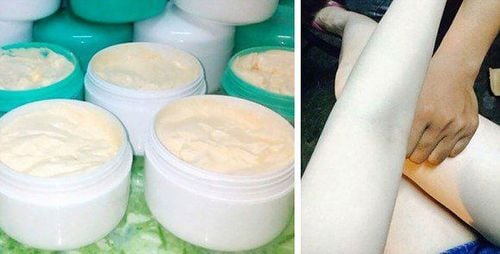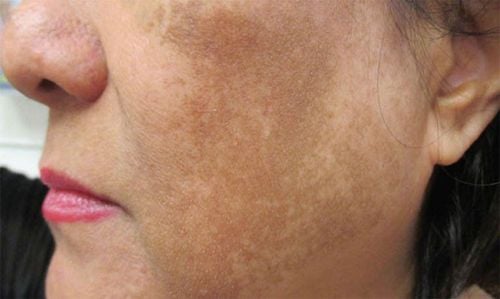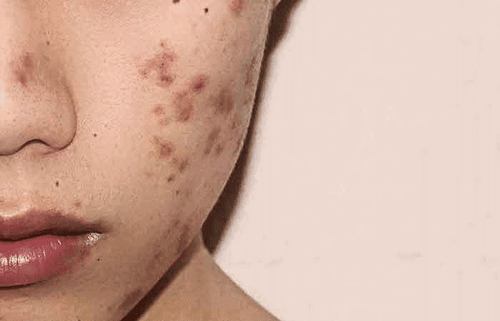1. What is melasma?
Melasma is a condition in which spots or patches of skin appear darker than the surrounding skin. This is a common skin issue that mothers often face after childbirth. Melasma is common in women aged 20 to 50, of which melasma occurs in pregnant women, and melasma after giving birth is quite common.
The most prevalent form of melasma is facial melasma. Changes in skin pigmentation can appear on the face, lips, forehead, chin, and nasal bridge. Additionally, melasma can occur in other areas of the body, particularly on skin that is frequently exposed to sunlight, such as the arms or neck.

2. Causes of melasma after giving birth
According to research, more than 50% of women have postpartum melasma and this condition can follow them for life if not treated properly. The causes of melasma come from many different factors, such as:
- Hormonal changes: postpartum, women often have hormonal imbalances, at this time the decrease in estrogen is the cause of melasma. In addition, over time, the woman's skin aging, free radicals have strong oxidizing abilities and are agents that directly attack the living cells of the skin, causing the skin to weaken and become susceptible to melasma, dark spots, and freckles.
- Due to exposure to sunlight: sunlight can affect women's skin, especially melanin - the pigment that determines and directly affects skin color. When pigmentation disorders occur, melanin will accumulate in certain fixed locations on the skin surface, causing uneven skin tone, dryness, and many brown patches, age spots, and melasma to appear.
- Not paying attention to skin care: Most postpartum women often do not take care of their skin as before. Mothers give up daily skin care steps due to too much time taking care of young children and irregular schedules. Others are worried that using cosmetics after giving birth may affect milk flow, so they say no to using facial cleansers, exfoliants, sunscreens, etc. The result is dull, dark skin, and unsightly melasma.
- Due to psychological effects: many people still don’t know how psychological factors affect health problems and even skin problems. Excessive stress, prolonged stress, and psychological pressure... are also potential factors that cause the skin to deteriorate, and promote the formation of melasma.

3. Will Postpartum melasma go away on its own?
Postpartum melasma usually fades within a few months after postpartum when hormone levels return to normal and the body stops producing too much skin pigment or melanin.
Linea nigra as well as freckles or melasma will also gradually fade after you give birth.
However, melasma can return if you are susceptible to this change in pigmentation and start using contraceptives containing estrogen.
4. What to do to minimize melasma after giving birth
Although melasma is not dangerous. Here are some ways to help reduce postpartum melasma:
Limit direct exposure to sunlight.
Avoiding the sun is one way to get your skin back to normal. Melasma will continue to occur if you are exposed to sunlight without protection.
Use a broad-spectrum sunscreen (a formula that protects against both UVA and UVB rays) with an SPF of 30 or higher every day, whether it is sunny or not. The American Academy of Dermatology warns that your skin is exposed to a significant amount of UV light year-round, even on cloudy days.

So, even if you don't plan on spending much time outdoors, apply sunscreen every day as part of your morning routine. Reapply sunscreen about every two hours if you are outside.
Whenever you spend time outdoors, cover up and wear a hat with a brim and a long-sleeved shirt if hyperpigmentation occurs on your arms. Limit your time in the sun, especially between 10 am and 2 pm.
Be gentle with your skin.
Use gentle cleansers and facial creams. Products that irritate your skin can make melasma worse.
Consider switching birth control methods.
Contraceptives that contain estrogen, such as birth control pills, can cause melasma or make it worse for a small number of women.
You may want to consider alternative methods of contraception, such as an intrauterine device (IUD), a contraceptive implant, progesterone injections (Depo-Provera), or non-hormonal methods, such as a diaphragm.
If your melasma does not improve within a year, talk to your dermatologist about your treatment options. Your doctor may prescribe a bleaching cream (such as hydroquinone), a topical medication containing tretinoin (such as Retin-A), or a combination of topical treatments.
In rare instances, your dermatologist may utilize a laser to lighten areas impacted by melasma.
When breastfeeding or planning a pregnancy, inform your doctor and always check before using over-the-counter medications or treatments.
Follow a reasonable diet
Women should follow a balanced and nutritious diet, rich in vitamins that promote health, especially while nursing a young child. Women should take advantage of this time by incorporating a glass of juice into their daily routine, such as grape or carrot juice. Both options help brighten the skin from the inside out and provide essential vitamins for the baby through breast milk. In addition, mothers need to drink plenty of water to purify toxins in the body and make the skin healthier.
Use a skincare mask
Taking care of children is very hard, but mothers should not forget to take care of themselves. Spend 15 to 20 minutes each week applying natural masks, such as potatoes, turmeric powder, tomatoes, and aloe vera, to significantly reduce dark spots.
Treating melasma is a long-term process, so it's important to be patient and not expect immediate results.
Any questions that need to be answered by a specialist, as well as customers who need examination and treatment at Vinmec International General Hospital, please make an appointment on the website for good service.
To arrange an appointment, please call HOTLINE or make your reservation directly HERE. You may also download the MyVinmec app to schedule appointments faster and manage your reservations more conveniently.
References: .babycenter.com













